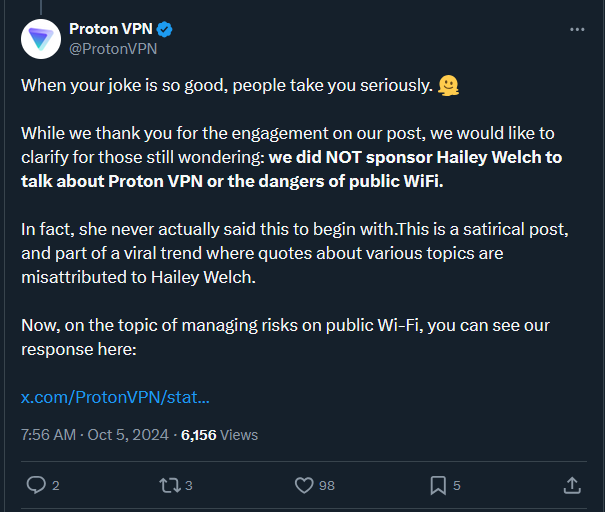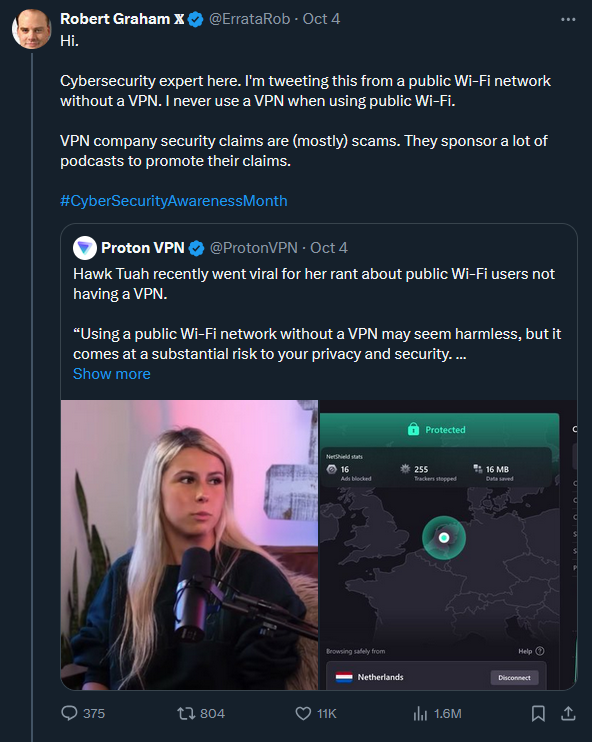this post was submitted on 06 Oct 2024
736 points (90.8% liked)
Technology
59378 readers
3669 users here now
This is a most excellent place for technology news and articles.
Our Rules
- Follow the lemmy.world rules.
- Only tech related content.
- Be excellent to each another!
- Mod approved content bots can post up to 10 articles per day.
- Threads asking for personal tech support may be deleted.
- Politics threads may be removed.
- No memes allowed as posts, OK to post as comments.
- Only approved bots from the list below, to ask if your bot can be added please contact us.
- Check for duplicates before posting, duplicates may be removed
Approved Bots
founded 1 year ago
MODERATORS
you are viewing a single comment's thread
view the rest of the comments
view the rest of the comments


What is he talking about, public WiFi can easily poison and monitor your DNS requests (most people don't know or use encrypted DNS), and there's still tons of non-https traffic leaks all over the place that are plain text. Even if encrypted, there's still deep packet inspection. VPNs can mitigate DPI techniques and shift the trust from an easily snoopable public WiFi to the VPN's more trustworthy exit servers.
This guy really needs to elaborate on what he's trying to say when the cyber security field very much disagrees with this stance. I'm not a huge fan of Proton, but they aren't doing anything wrong here. You should use it for public Wi-Fi.
But a cybersecurity expert does. That's the point. If you know those things, VPNs become obsolete, for most people. So why not teach people about it, instead of promoting VPNs?
And can you really trust an extremely profit focused company, that is built on user data, more than your local Café? If you're in China, sure, use a VPN, they're the lesser evil. But most spots don't have the resources or expertise to analyze and sell or otherwise misuse your logs. VPN companies not only do, most rely on it.
If you're a highly targeted person, it's another story, but in that case your only hope is Tor or a new identity.
Encrypted DNS doesn't solve everything. Handshake for TLS sessions is still in clear, you can usually see the SNI, and since we are talking about Wireless, usually this data is available to anybody who is in the vicinity, not just the network owner. This already means that you can see what sites someone is visiting, more or less. TLS 1.3 can mitigate some of this (for those who implement ESNI, but you don't know that beforehand). Also TLS works until the user is not accepting invalid certificates prompts (HSTS doesn't work for everything) and there are still tons of HTTP-based redirect (check mailing newsletters and see how many first send you to an HTTP site, for example) that can be used for MiTM attacks.
A VPN moves the trust to a single provider that you can choose, which is much better than trusting every single WiFi network you can attach to and the people connected to it, I would say.
Also if you pay for the VPN (I pay Proton), it's not true that the company business is based on user data, they are based on subscriptions.